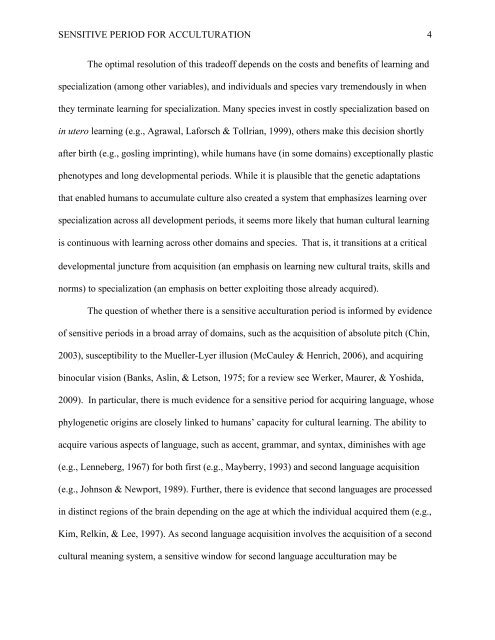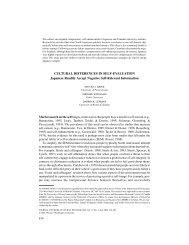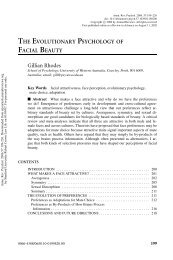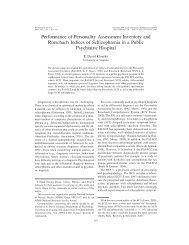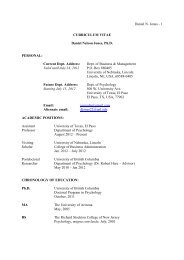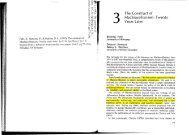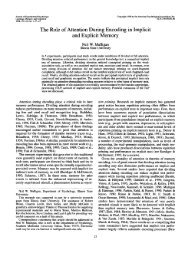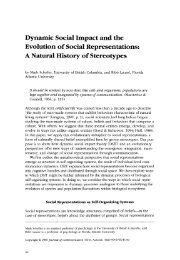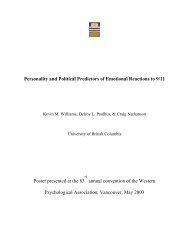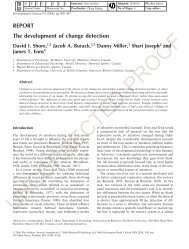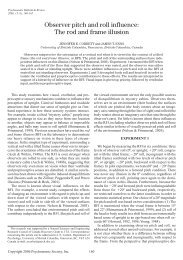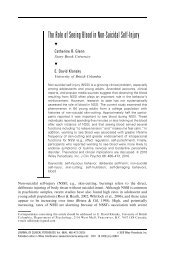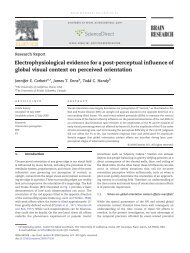Running Head: Sensitive Period for Acculturation 1 Evidence for a ...
Running Head: Sensitive Period for Acculturation 1 Evidence for a ...
Running Head: Sensitive Period for Acculturation 1 Evidence for a ...
You also want an ePaper? Increase the reach of your titles
YUMPU automatically turns print PDFs into web optimized ePapers that Google loves.
SENSITIVE PERIOD FOR ACCULTURATION 4The optimal resolution of this tradeoff depends on the costs and benefits of learning andspecialization (among other variables), and individuals and species vary tremendously in whenthey terminate learning <strong>for</strong> specialization. Many species invest in costly specialization based onin utero learning (e.g., Agrawal, La<strong>for</strong>sch & Tollrian, 1999), others make this decision shortlyafter birth (e.g., gosling imprinting), while humans have (in some domains) exceptionally plasticphenotypes and long developmental periods. While it is plausible that the genetic adaptationsthat enabled humans to accumulate culture also created a system that emphasizes learning overspecialization across all development periods, it seems more likely that human cultural learningis continuous with learning across other domains and species!""That is, it transitions at a criticaldevelopmental juncture from acquisition (an emphasis on learning new cultural traits, skills andnorms) to specialization (an emphasis on better exploiting those already acquired).The question of whether there is a sensitive acculturation period is in<strong>for</strong>med by evidenceof sensitive periods in a broad array of domains, such as the acquisition of absolute pitch (Chin,2003), susceptibility to the Mueller-Lyer illusion (McCauley & Henrich, 2006), and acquiringbinocular vision (Banks, Aslin, & Letson, 1975; <strong>for</strong> a review see Werker, Maurer, & Yoshida,2009). In particular, there is much evidence <strong>for</strong> a sensitive period <strong>for</strong> acquiring language, whosephylogenetic origins are closely linked to humans’ capacity <strong>for</strong> cultural learning. The ability toacquire various aspects of language, such as accent, grammar, and syntax, diminishes with age(e.g., Lenneberg, 1967) <strong>for</strong> both first (e.g., Mayberry, 1993) and second language acquisition(e.g., Johnson & Newport, 1989). Further, there is evidence that second languages are processedin distinct regions of the brain depending on the age at which the individual acquired them (e.g.,Kim, Relkin, & Lee, 1997). As second language acquisition involves the acquisition of a secondcultural meaning system, a sensitive window <strong>for</strong> second language acculturation may be


